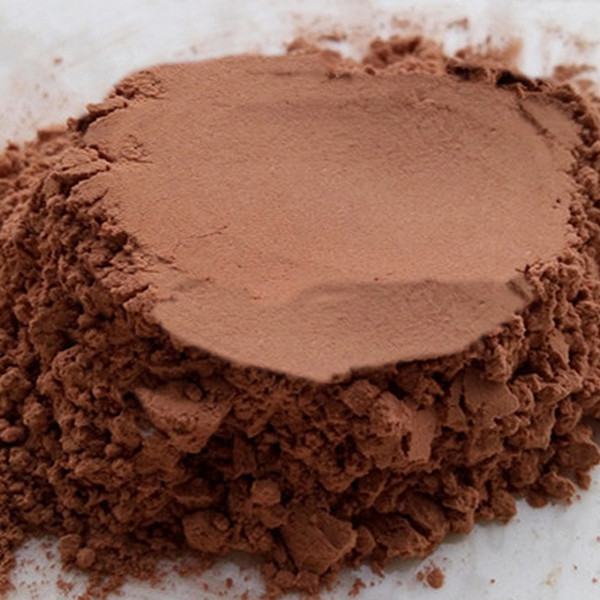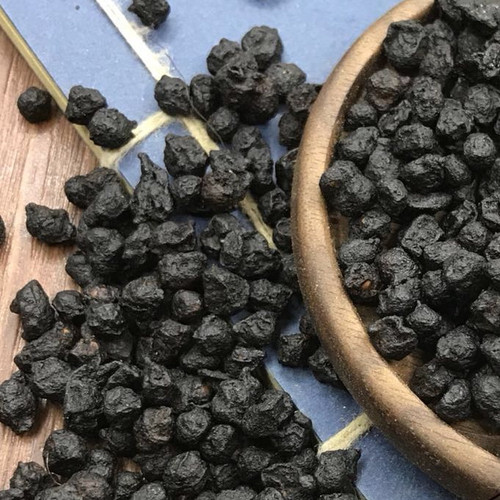Product Overview
Parts used: Dried ripe fruits
TCM category: Herbs that stabilize and bind
TCM nature: Warm
TCM taste(s): SourSweet
Meridian affinity: Heart Kidney Lung
Scientific name: Schisandra chinensis
Other names: Schizandra berries, Five-flavor-fruits, Magnolia-vine fruits, Magnolia berries
Use of schisandra berries (Wu Wei Zi) in TCM
Please note that you should never self-prescribe TCM ingredients. A TCM ingredient is almost never eaten on its own but as part of a formula containing several ingredients that act together. Please consult a professional TCM practitionner, they will be best able to guide you.
Preparation: Harvest fruits when ripe, remove the stems and dry the flesh.
Dosage: 2 - 9 grams
Main actions according to TCM*: Tonifies the Kidneys and preserves the Essence. Astringes the Lung Qi and stops coughing. Retains Bodily Fluids and encourages their production. Tonifies the Heart and calms the spirit (Shen).
Primary conditions or symptoms for which schisandra berries may be prescribed by TCM doctors*: Dyspnea Spermatorrhea Enuresis Urinary incontinence Night sweats Diabetes Insomnia Palpitations Vaginal discharge Dry cough Asthma
Contraindications*: This herb should not be used by those with Internal Heat nor by those with an Externally contracted disease.
Common TCM formulas in which schisandra berries are used*:
For impotence, spermatorrhea, premature ejaculation, weak and low sperm count combine schisandra berries with plantain seeds (Che Qian Zi), cuscuta seeds (Tu Si Zi), goji berries (Gou Qi Zi) and palmleaf raspberries (Fu Pen Zi).
For for symptoms of exhaustion and fatigue with shortness of breath, excessive perspiration and thirst combine schisandra berries with ginseng (Ren Shen) and dwarf lilyturf roots (Mai Dong).
For asthma, cough combine schisandra berries with lingzhi mushroom (Ling Zhi), codonopsis roots (Dang Shen), prepared aconite (Zhi Fu Zi) and crow-dipper rhizomes (Ban Xia).
For fluid accumulation with cough, wheezing combine schisandra berries with coltsfoot flowers (Kuan Dong Hua) and crow-dipper rhizomes (Ban Xia).
Key TCM concepts behind schisandra berries (Wu Wei Zi)'s properties
In Traditional Chinese Medicine (TCM), schisandra berries are plants that belong to the 'Herbs that stabilize and bind' category. This category of herbs is used for treating abnormal discharges and displacement of organs. This includes conditions such as diarrhea, discharges from the vagina, penis or rectum as well as prolapse of the uterus or rectum. It is important to note that herbs in this category only treat symptoms, so one should also use herbs to treat the underlying Deficiency.
Furthermore schisandra berries are plants that are Warm in nature. This means that schisandra berries tend to help people who have too much "cold" in their body, although with less effect than a plant that would be Hot in nature. Balance between Yin and Yang is a key health concept in TCM. Those who have too much cold in their body are said to either have a Yin excess (because Yin is Cold in nature) or a Yang deficiency (Yang is Hot in Nature). Depending on your condition schisandra berries can help restore a harmonious balance between Yin and Yang.
Schisandra berries also taste Sour and Sweet. The so-called "five elements" theory in Chinese Medicine states that the taste of TCM ingredients is a key determinant of their action in the body. Sour ingredients like schisandra berries help with digestion and restrain abnormal discharges of fluids from the body, such as diarrhea or heavy sweating. On the other hand Sweet ingredients tend to slow down acute reactions and detoxify the body. They also have a tonic effect because they replenish Qi and Blood.
The tastes of ingredients in TCM also determine what organs and meridians they target. As such schisandra berries are thought to target the Heart, the Kidney and the Lung. In addition to regulating blood flow, in TCM the Heart is believed to be the store of the "spirit" which basically refers to someone's vitality. The Kidneys do not only regulate the urinary system but also play a key role in the reproductive system and the growth and aging process of the body. In addition to performing respiration, the Lungs are thought to be a key part of the production chain for Qi and the body fluids that nourish the body.
Use of schisandra berries (Wu Wei Zi) as food
Schisandra berries are also eaten as food. It is used as an ingredient in dishes such as Schisandra berry syrup.






